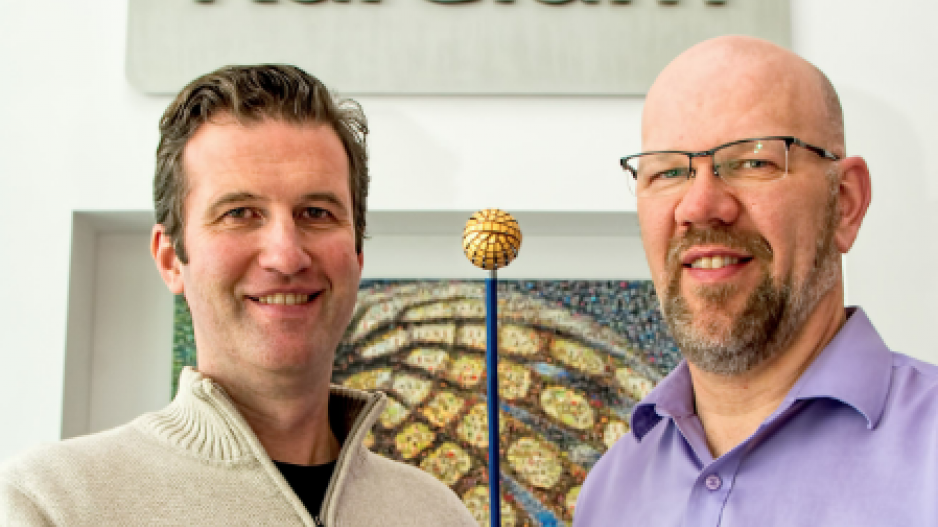A B.C. medical device company that helps doctors fix ailing heartbeats is pumping in a whole lot more capital.
Kardium Inc. revealed Monday (January 25) its latest financing round has raised US$115 million.
CEO Kevin Chaplin said he’s “tremendously excited” with the raise as it gives the company financial stability and a plan for the next four years as it eyes going public.
“It shows that what we’re doing is valuable and worthwhile,” he told BIV.
The capital raise comes after Kardium received regulatory approval in Europe last year for its Globe Mapping and Ablation System, which aims to treat atrial fibrillation (an irregular heartbeat) more efficiently.
With European regulatory approval in hand and the launch of sales in Germany over the summer, Chaplin said the US$115 million will also help fund efforts to gain American regulatory approval through the U.S. Food and Drug Administration — a process that could take up to three years.
The funding round was led by Fidelity Management & Research Company LLC and features follow-on participation from T. Rowe Price Associates Inc.
Chaplin said he’s grateful the company’s financial backers are the patient type as an initial public offering is still likely two to three years away.
“They'd rather wait until we're at a stage where the company is more likely to be successful in the long term as a public company,” he said.
All of Kardium’s devices are manufactured at a facility in Burnaby before being shipped to Europe.
Chaplin said plans are underway for expanding local production capacity and the company is going on a hiring spree to double its headcount to about 400 workers over the next two years.
The company will be vying for a mix engineering, manufacturing, marketing and sales teams.
Because of the complexity of the device, Chaplin and a small team had to travel to Germany last year to assist with training doctors and nurses.
He said at the time the absence of his team upon the European launch would have been akin to “trying to teach a pilot to fly an airplane over a Zoom call.”
Kardium’s device, about one metre long, has a handle at one end to control it and a catheter with an array of electrodes at the other end.
The catheter is inserted into the femoral vein via a needle in the patient’s groin area, and the device’s electrodes travel up to the heart.
The electrodes map the heart’s activity and then burn tissue inside to create scarring, stopping the bad electric signals and returning the heart to its normal rhythm.
Current systems feature one electrode.
Kardium’s has 122 electrodes, which can reduce the process from about four hours to about one hour.
The equipment used for current procedures costs about US$8,000 to US$12,000 per procedure. Kardium’s costs for the one-time-use device are comparable to that.
“We're looking to be an anchor Vancouver company where we build high-skilled technology jobs in the medical space, which is an exciting area to be in,” Chaplin said.




